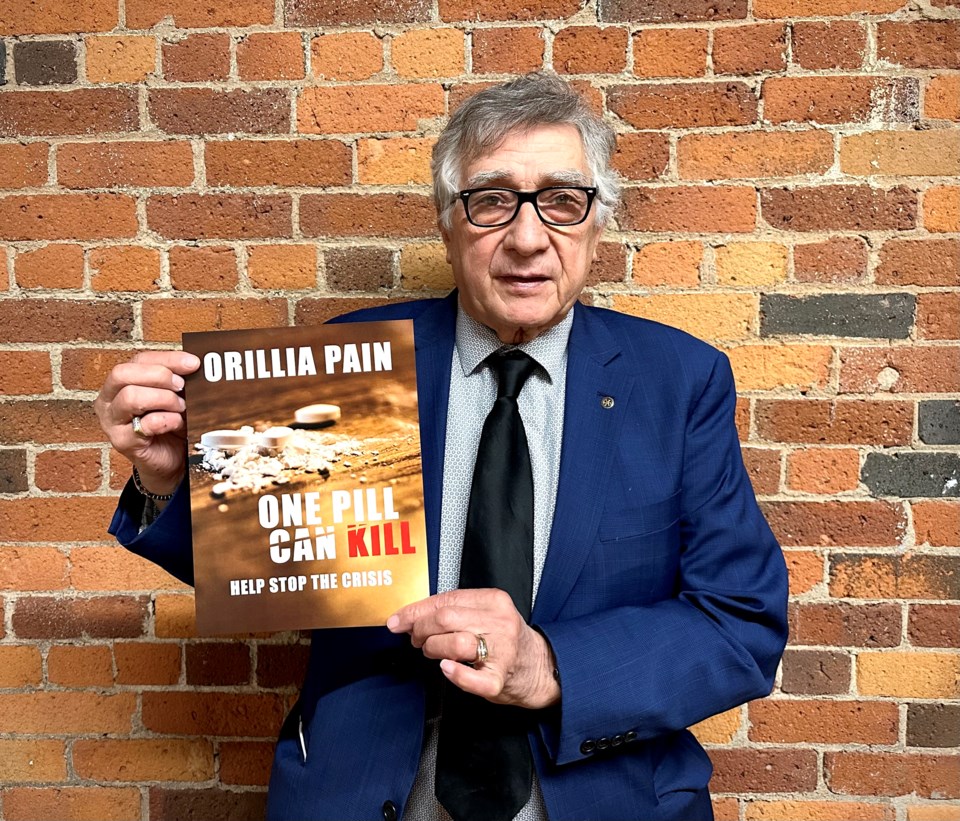The city’s addiction and overdose crisis working group is honing in on potential locations and service providers for a planned community hub meant to help those in need locally connect with community members and navigate local health resources.
Formed last fall as a successor to the opioid crisis working group, the new group includes city councillors Janet-Lynne Durnford and Ralph Cipolla, as well as representatives from the County of Simcoe and various community organizations.
The new group, which has met numerous times through the winter and spring, is “really, really focused” on creating a physical community hub for the city’s vulnerable, Durnford told OrilliaMatters.
The community hub, or “social connection centre,” will not only help clients with addictions or mental health issues navigate the healthcare system, but will also serve as a place “to get a cup of coffee and a sandwich, play cards, and build that sense of community connection,” Durnford said.
“One of the guiding principles of the group is that connection is the opposite of addiction, and that's borne out by tons and tons of research,” she said.
“What we're envisioning is a physical space, where it would be open to everyone, but the target demographic is people experiencing addiction and mental health challenges, and it would be run by staff who have expertise in that area, but would also draw on community volunteers," Durnford explained.
One of the hub’s additional goals is to provide a stigma-free environment for people to find help, said Cipolla, who spearheaded the formation of the original working group.
“Anybody can drop in, and then sit around and chat and that kind of stuff. It's more an informal way of getting help,” Cipolla said. “People that are in need of help don't like to be stigmatized.”
Aside from connecting people with local resources, Durnford said the hub could potentially offer certain services on site “depending on the needs of the population.”
“We would love to do that. That's kind of ultimately our goal — is to have some services on site,” she said.
As part of the effort, the working group has chatted with people running similar projects in Ottawa and Kingston, and has begun narrowing down potential locations for the hub in Orillia — with Cipolla saying the group has visited several potential sites for the project.
The group will present a report to council on the project this summer, seeking its support, and the group is actively meeting with and seeking out potential service partners — whether individuals or organizations — to help operate the hub.
Durnford said the group has also set up meetings to explore funding opportunities, and Cipolla said the project will rely on funding from multiple levels of government.
“We're going to have to have some financial partners, such as the county and the province, even as well as the federal government, because it's a complicated issue,” Cipolla said. “I think this is going to work extremely well once it’s working.”
Beyond the community hub, the group is also working on a poverty reduction strategy in partnership with a graduate student from Lakehead University, a project Durnford said is “going gangbusters.”
“We have a masters student who is working with Lakehead, and we have a liaison group of myself and (city CAO) Gayle Jackson, and someone from the health units … and she is making great progress," Durnford explained.
As part of that work, the liaison group is holding a poverty reduction symposium later this month.
“We're going to have a panel that really delves into the effects of poverty in Orillia specifically, and what that looks like and where the gaps are,” she said. “Then there will be working groups that look at the areas of municipal jurisdiction, so that we can create an action plan in each of those … areas.”
While the new working group is primarily focused on the community hub project, as well as a public awareness campaign, the original opioid crisis group also identified numerous local needs, which are as follows:
- Coordinating access to treatment, harm reduction, and mental health services;
- Creating Orillia-based detox services and beds;
- Creating publicly-funded addiction treatment services and beds, above the 15 currently available, for men, at the Seven South Treatment Centre;
- Creating harm reduction services, such as supervised consumption sites;
- Expanding the scope, scale, and accessibility of mental health services;
- Developing a poverty reduction strategy; and
- Developing partnerships with local post-secondary institutions to help improve addictions services locally.
Durnford said many of these needs — such as supervised consumption sites, treatment beds, and more — fall under provincial jurisdiction, and she said the group has not heard back from the province on these initiatives despite its efforts over the course of the fall and winter.
“The ones that are within provincial jurisdiction, we have heard absolutely nothing back,” she said. “I’m attending the Association of Municipalities of Ontario conference in August, so I'm just preparing a delegation request that is based specifically on those needs that were identified in that report that the city absolutely cannot do — it's not in our jurisdiction – but the province can.”
The working group is already "extending the work of the county," Durnford said, noting that while the county has been very supportive of its work, the province needs to step up, too.
"To get a little bit political, it really speaks to this $4 billion funding gap (where) municipalities are stepping in and providing services that really are the responsibility of the province, because we have to," she said.
